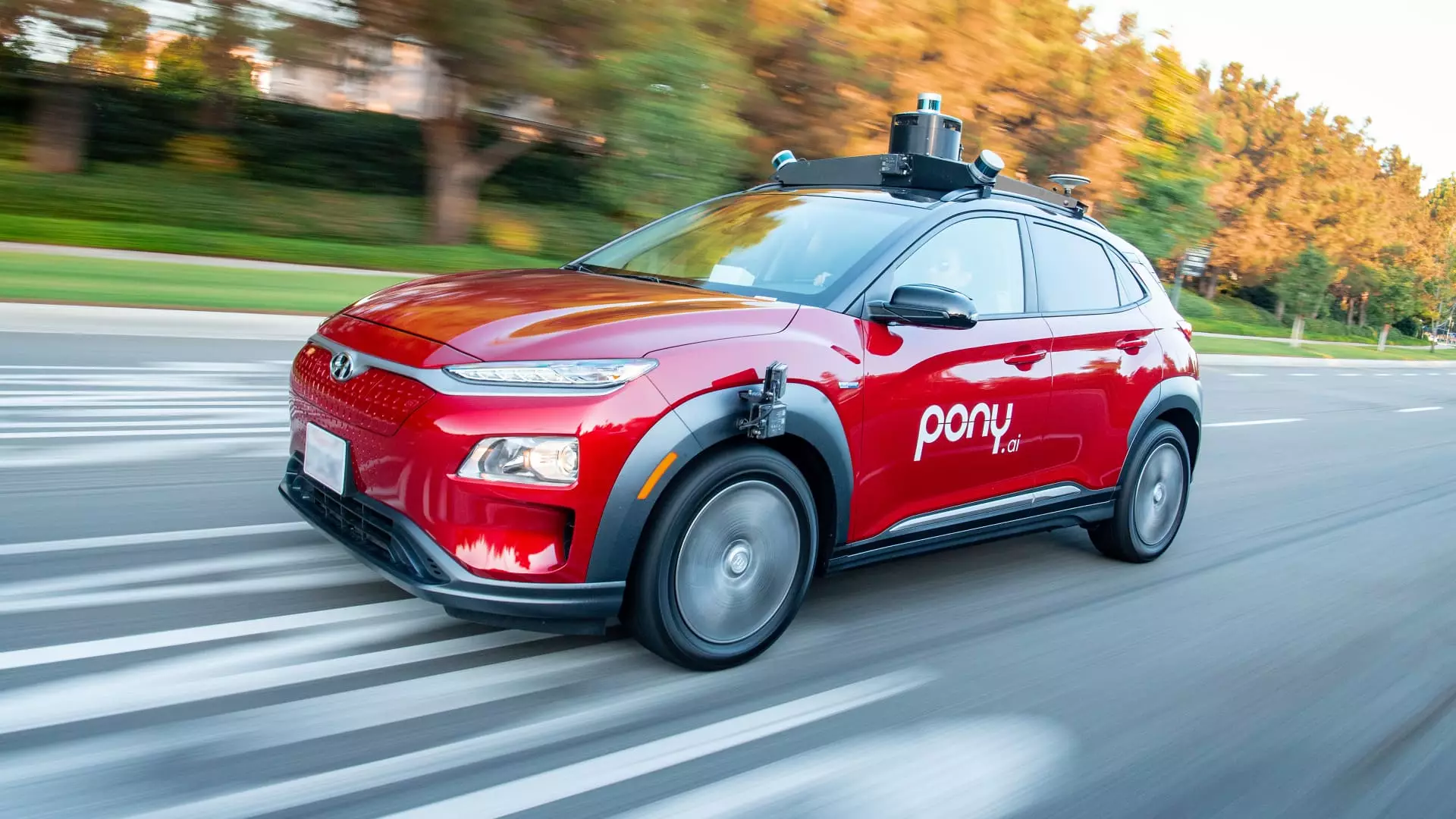In a strategic move that could redefine urban transportation, Chinese start-up Pony.ai has announced a groundbreaking partnership with tech behemoth Tencent Cloud. This collaboration signals a substantial leap forward in autonomous driving technology, particularly in the realm of robotaxis, and showcases the power of synergistic innovation in a rapidly evolving tech landscape. Pony.ai’s CEO, James Peng, confirmed this exciting development during the Shanghai Auto Show, emphasizing the potential for a “win-win” collaboration that leverages Tencent’s massive user base and advanced cloud services. The burgeoning partnership is expected to seamlessly integrate Pony.ai’s ride-hailing capabilities within Tencent’s ubiquitous WeChat app, allowing the over 1 billion users of the platform to access autonomous rides with just a few taps on their smartphones.
Combining Forces for Unprecedented Innovation
This alliance isn’t merely a strategic maneuver; it epitomizes a fusion of expertise that both companies bring to the table. Pony.ai is renowned for its cutting-edge autonomous vehicle technology, while Tencent is a titan in cloud computing, mapping solutions, and the intelligent cockpit ecosystems necessary for autonomous vehicles. Vice President Zhong Xiangping articulated this vision, noting that the collaboration is about more than just technological enhancement; it marks a pivotal moment for collaborative innovation in the field of smart mobility. The efforts will focus on the development and operationalization of Level 4 (L4) autonomous driving technology, which allows the vehicle to operate independently in select areas without human oversight—a significant milestone in the realm of self-driving technology.
Strategic Moves Amid Global Tensions
Despite the promise of this partnership, the backdrop of increasing trade tensions between China and the U.S. casts a shadow over Pony.ai’s expansive ambitions. The company has made significant inroads in domestic markets, even obtaining the first permit to charge fares for fully driverless taxis in Shenzhen, which also happens to be Tencent’s headquarters. However, Peng has indicated that the company is keen on expanding its footprint internationally, particularly in the U.S. market, which he deems critically important for growth. Yet, the looming possibility of U.S. delisting of Chinese firms poses a conundrum. The discussions of a potential secondary listing outside the U.S. underscore the precariousness of the current geopolitical climate and its implications for tech-driven enterprises.
A Transformative Impact on Urban Transportation
Pony.ai’s collaboration with Tencent is set to herald transformative changes in urban transportation globally. Imagine a scenario where you can summon a robotaxi in seconds through an app that integrates your messaging, financial transactions, and food deliveries. This seamless user experience not only simplifies the act of commuting but also enhances accessibility to autonomous transportation. The harnessing of cutting-edge technologies—such as sophisticated cloud computing and real-time mapping—will likely enhance the safety and efficiency of robotaxi services, addressing one of the key concerns surrounding autonomous vehicles.
In this landscape, Pony.ai rises as a formidable player in the realm of autonomous technology, committed to overcoming hurdles and redefining what mobility means in a modern context. The anticipation surrounding the release of their seventh-generation robotaxi solution at the Shanghai Auto Show underscores the momentum this start-up is gaining in the autonomous industry. With shares experiencing a significant uptick following the announcement, it is clear that investors and consumers alike are buying into the vision Pony.ai is presenting.
Shaping the Future of Smart Cities
As cities around the world embrace smart technology to address urban challenges, the intersection of powerful players like Pony.ai and Tencent could very well set the gold standard for how smart mobility is achieved. The deployment of autonomous vehicles integrated with cloud-based services promises not only to reshape personal transportation but also to alleviate traffic congestion and reduce emissions in urban centers. If executed successfully, this vision of a connected, autonomous future could offer cities the opportunity to create sustainable, efficient, and technologically advanced transportation networks.
With the autonomous driving landscape rapidly evolving, the collaboration between Pony.ai and Tencent is a testament to the innovative spirit that drives the tech industry forward. As they venture into this new chapter, the implications of their partnership could resonate far beyond the immediate domain of transportation, influencing various sectors as they integrate intelligent mobility solutions into the fabric of everyday life.

